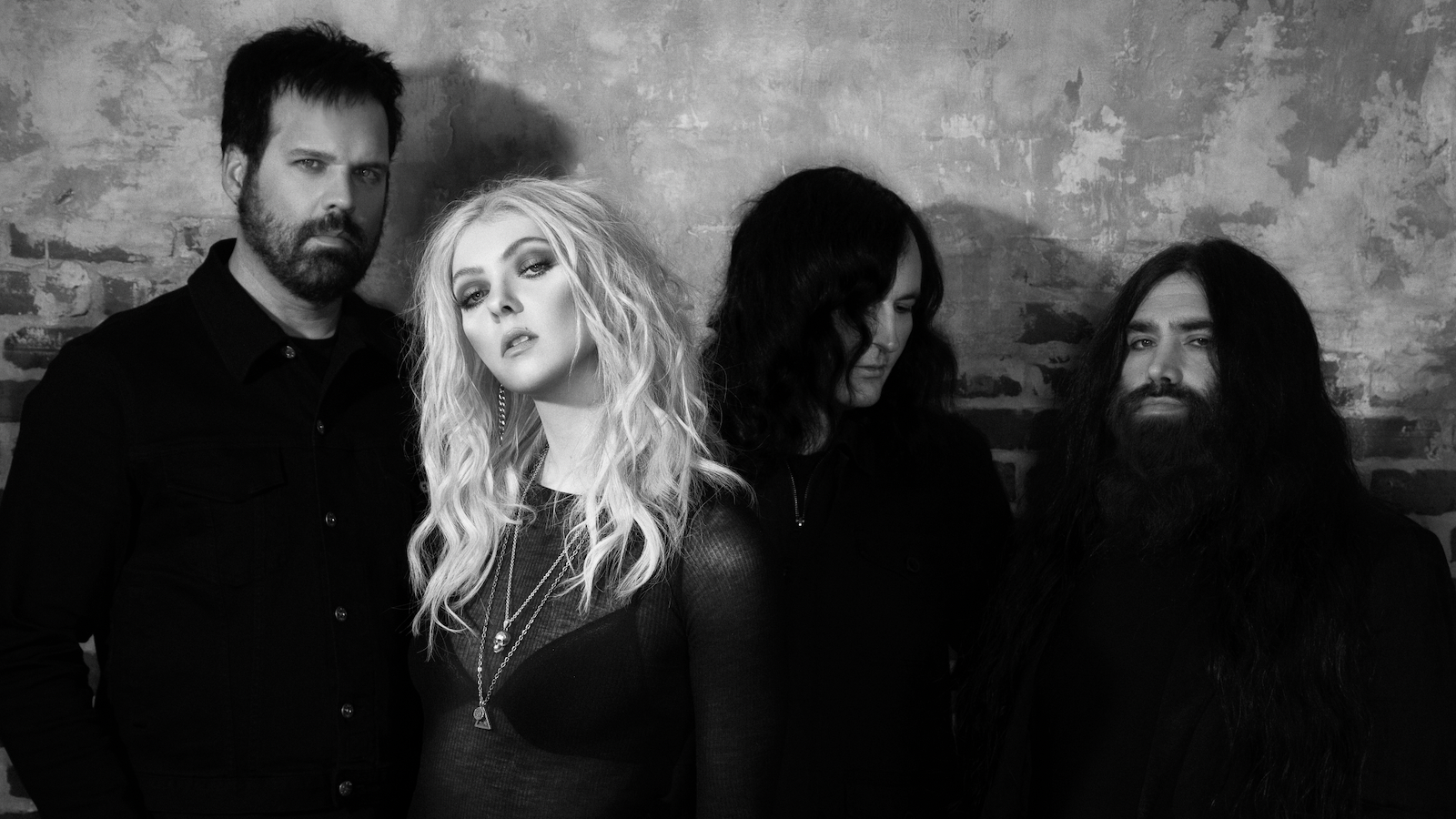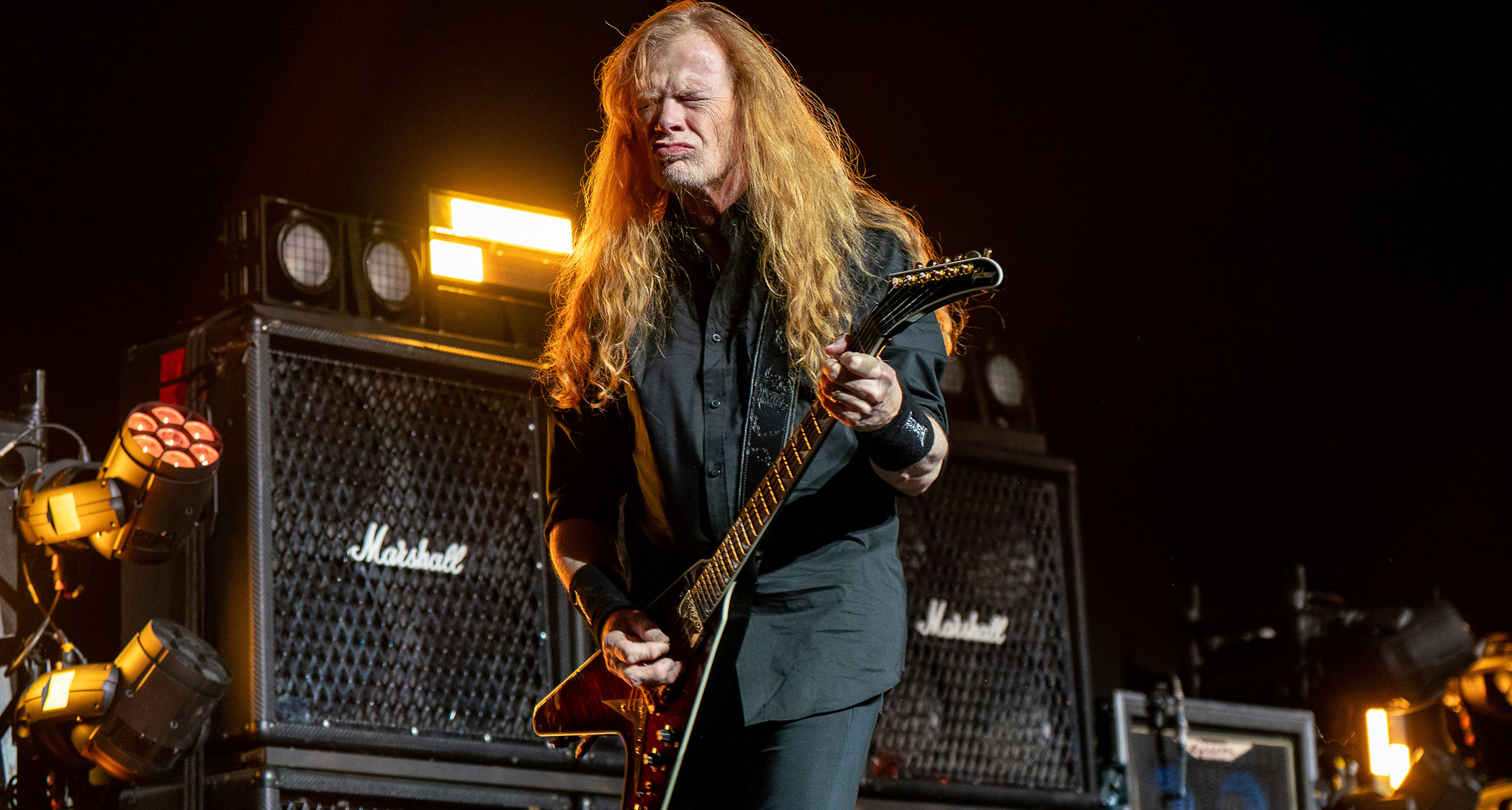The Pretty Reckless’ Taylor Momsen: “It was very literally music that saved my life”
The new album, Death By Rock And Roll, serves as both a bright new beginning and a pertinent outlet for mourning

All the latest guitar news, interviews, lessons, reviews, deals and more, direct to your inbox!
You are now subscribed
Your newsletter sign-up was successful
Note: this article is also featured in Australian Guitar #142, which is out now wherever great magazines are sold! Click here to read more about what’s in this jam-packed issue!
Despite the LP’s notably bleak title, Death By Rock And Roll is actually what saved The Pretty Reckless from an early grave. After the sudden death of close friend (and timeless grunge icon) Chris Cornell on May 18th, 2017, the New York hard-rockers were shaken to the core. Anyone in their position would be – Cornell committed suicide mere hours after fronting a gig with Soundgarden, for which The Pretty Reckless served as its opening act. They were some of the last people Cornell spent time with, and the significance of as much sent the band into a deep depressive spiral.
In particular, frontwoman Taylor Momsen hit rock bottom hard and fast. Songwriting was the least of her concerns – especially when less than a year after Cornell’s passing, The Pretty Reckless’ longtime collaborator and go-to producer, Kato Khandwala, was killed in a motorcycle accident.
Drugs and isolation defined the next couple years of Momsen’s life, until a random glint of creative motivation sparked up. Momsen clung onto the morsel for dear life, pouring her agony out on paper less in the form of structured, aforethought lyrics, and more in a desperation-fuelled stream of consciousness. Little of it made any sense, but in time, Momsen was able to salvage key lines and thematic nodes with which to build the framework of an album.
The end result is not only a monolithic rebirth for The Pretty Reckless, but easily their most impassioned and intense body of work to date. At face value, Death By Rock And Roll is an operatic epic packed with hugely emotive, musically towering cuts that condense and amplify everything the band does best. Beyond that, it’s effectively what pulled Momsen back from the brink of her own demise.
With the record out and generating inhuman levels of praise, Australian Guitar caught up with Momsen to dig a little deeper.
Especially given how chaotic the journey up to this point has been, how do you feel now that you’ve finally been able to unleash this beast into the wild?
It’s surreal, honestly. We finished the album a little over a year ago, but we’ve been sitting on it due to the world’s circumstances – the fact that it’s finally out almost doesn’t feel real. It’s crazy, in the best way possible. I’m so happy to be able to share it, and people can finally listen to it. I’ve been holding onto it for dear life for the past year, and now it’s suddenly out there in the world! It’s like sending your child off to college and going, “Okay, do me proud! I hope I raised you well!”
All the latest guitar news, interviews, lessons, reviews, deals and more, direct to your inbox!
I love how the record ebbs and flows between these really big, balls-to-the-wall rock ’n’ roll moments, and some more atmospheric, sometimes orchestral-based sections. Was that flow between the highs and lows something you wanted to really dial in on?
Yeah, for sure. I don’t know exactly how calculated everything is, but this record came from a lot of places. We went through a lot of loss in the past few years, and this record is really the culmination of all that. I got very down as a person, I fell into a very dark hole of depression and substance abuse and everything that comes along with grief, and I wasn’t sure how I was going to get out of it.
But to make a very long story short, and as cliché as it may sound, it was very literally music that saved my life – writing this album is what really kind of pulled me back to life. It was very cathartic, in the way that I almost didn’t have to think when I was putting pen to paper. I feel like I didn’t even write this record, the record wrote itself. It just kind of poured out of me, whether I wanted it to or not. And that’s a rare occurrence as a writer. I put everything I had into it, and I’m extraordinarily proud of it.
And I think we took a lot of… I don’t want to say risks, but there’s a lot of sonic evolution on this record, and I really do think we took a big step forward with it. Dare I say it: this might be the best album we’ve ever made.
Do you feel like you can hear that catharsis, and the raw passion you put into this album, when you listen back on it?
Absolutely! I think it’s undeniable, from the songwriting alone to the performances on the record, that we were able to capture a sense of energy and humanness that you simply can’t fake. We were capturing a moment in our lives that couldn’t be duplicated if we’d tried – we were living it, and that kind of purity – that kind of vulnerability – is something so rare. So to capture that on tape… It was certainly challenging at times, but I think it made for an extraordinarily special record.
Early in the tracklist, there’s an obviously really important track for the band, and definitely one that stands out on the record too: “Only Love Can Save Me Now” with (Soundgarden’s) Matt Cameron and Kim Thayil. What can you tell us about how that song came together?
That song was written from the lowest of lows. Like I said, I was in a very dark kind of headspace, and I think that song in particular was born out of desperation. I’d hit a point where I was so low, and I was just looking for anything to kind of save me. Love is such a powerful force in the world – whether that’s love from other people, or y’know, our love of music… Whatever you equate love to in your own life, that’s what it’s about. It was a very personal song for me to write.
And then when we came to recording, it was actually one of the last songs we did for the album. When I finished writing the song, I sent a demo off to Matt and Kim, who are very dear friends of mine, and obviously exquisite musicians –
and I knew they would bring this incredible sense of weight and power to it, which no-one other than them could.
The whole experience of recording it was just amazing: we flew to Seattle to record at London Bridge Studios, which is where Soundgarden recorded
Louder Than Love back in the day, Pearl Jam made Ten and Alice In Chains made Dirt – the list of iconic records made there goes on and on.
I’m a very firm believer that places are kind of like people, they hold memories in the walls, and so just walking into that studio was incredible. You could feel the vibe; you could feel the energy of all the records that had been made there previously. And to be there with Matt and Kim, y’know, walking around the studio and having Kim point to every picture on the wall or every little note that’s still hanging up there, telling a story about it… It was just incredible.
And then to hear the song coming to life for real, in realtime, was just absolutely magical. The first time Matt hit his snare and with the first note that Kim strummed out, the song just exploded out of the speaker. It’s by far one of my favourite songs on the record. I’m not supposed to say that because they’re all my favourite, but that song in particular is very special to me, and making it was definitely a career highlight.

Ellie Robinson is an Australian writer, editor and dog enthusiast with a keen ear for pop-rock and a keen tongue for actual Pop Rocks. Her bylines include music rag staples like NME, BLUNT, Mixdown and, of course, Australian Guitar (where she also serves as Editor-at-Large), but also less expected fare like TV Soap and Snowboarding Australia. Her go-to guitar is a Fender Player Tele, which, controversially, she only picked up after she'd joined the team at Australian Guitar. Before then, Ellie was a keyboardist – thankfully, the AG crew helped her see the light…
